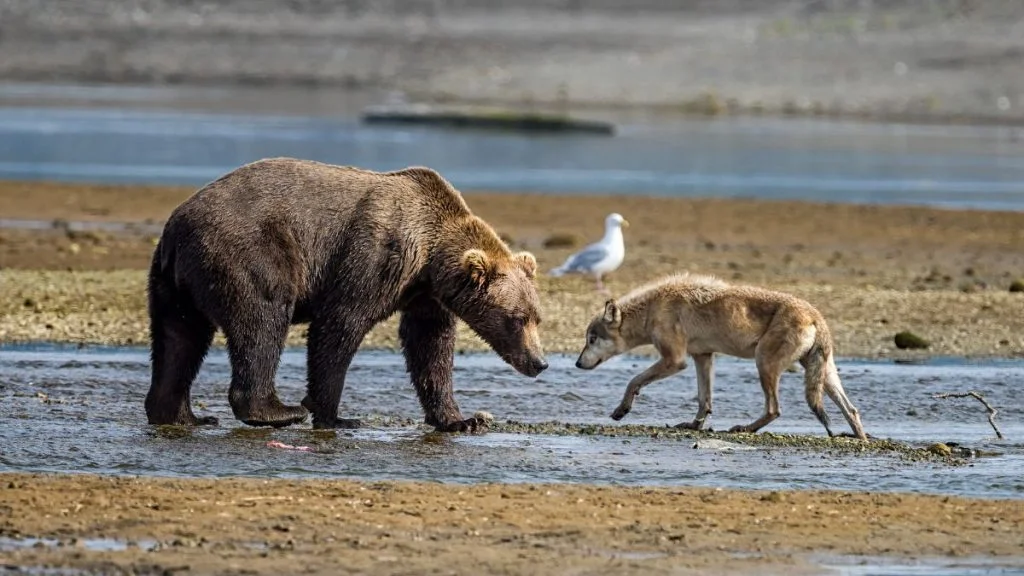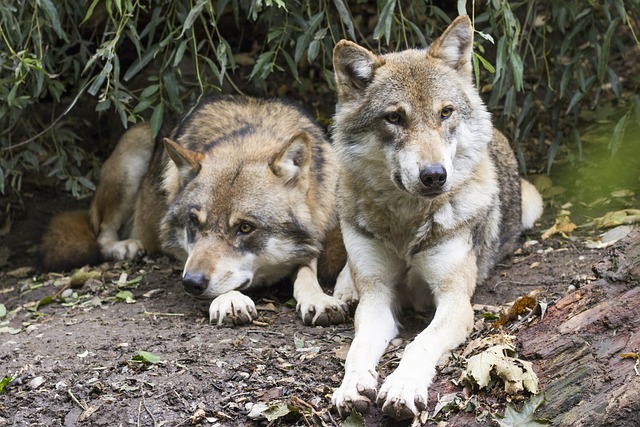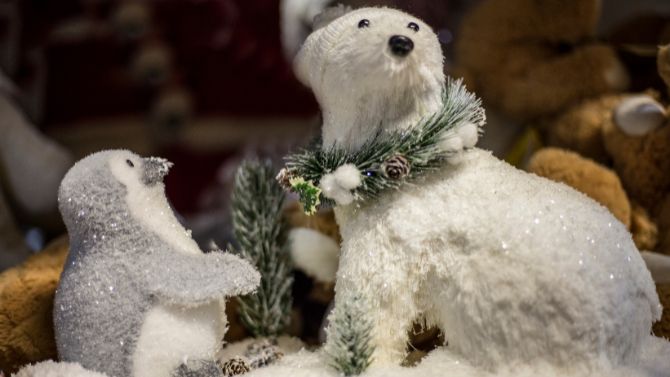Bears can kill and eat wolves. They are much larger than the wolves and because of this size advantage, killing and eating them is possible. However, this doesn’t often happen as bears are poor hunters and won’t hunt after wolves.
It might be surprising, but do you know that bears and wolves are somewhat related?
I know this is unbelievable but evolutionary history shows that this duo shares a common ancestor.
This distant relationship won’t stop the bears and wolves from hunting down each other for food when the need arises because it’s a “dog eat dog world” out there in the wild.
But do bears eat wolves? Is it common for bears to eat wolves and vice versa? Who is stronger between these two apex predators? What other animals can bears and wolves eat?
Continue reading to find out.
Do Bears Eat Wolves?
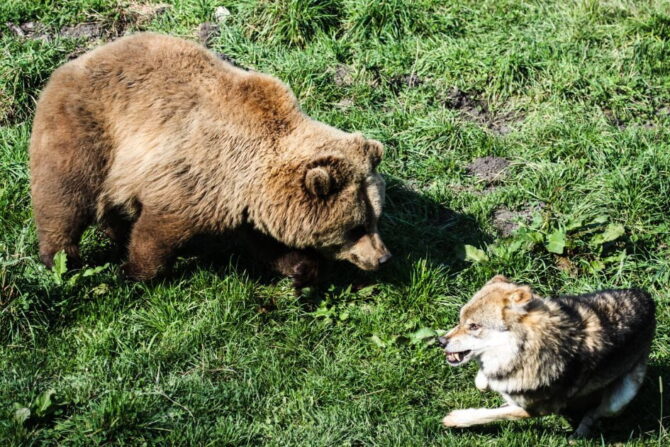
Bears are one of the wild’s top predators and can eat wolves, but this doesn’t happen too often as a bear won’t hunt after wolves.
With their poor hunting skills, bears prefer to go after other animals easy to kill than hunt wolves that are faster and more agile than they are.
If a bear comes across a recently dead wolf, it will delightfully have its share of the meat as bears are scavengers known to consume carrion meat—recently dead animals and carcasses.
Aside from that, wolf meat is not one of the many meals bears will include in their diet regularly.
In most cases, bears will steal a wolf’s portion of ungulates (deer, moose, rabbits, rodents, elks, etc.) or hunt for their own, as there are plenty of these animals in the forest.
Bears barely ever eat wolves as they are omnivores, and thus, there are various food options to choose from.
Do Wolves Eat Bears?
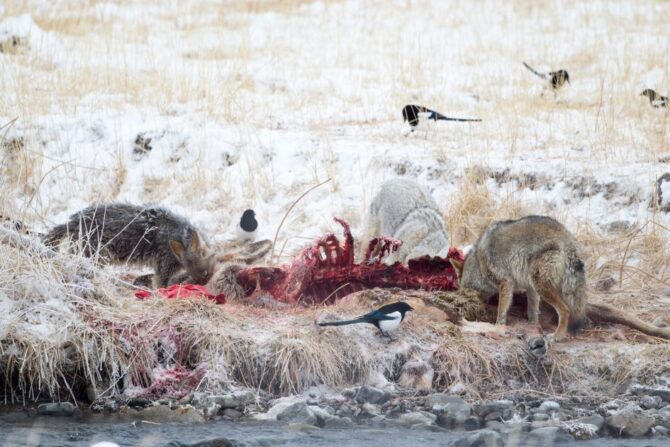
Wolves, just like bears, are apex predators and will rather hunt smaller animals than their fellow predators.
They can go after bear cubs that have strayed away from their family and are unprotected rather than hunt bigger ones.
Wolves are opportunistic feeders and if they have the right opportunity to kill and eat a bear, be sure they will take it.
Normally, wolves don’t stand a chance against bears because they’re smaller in size and not as strong as bears unless they attack in packs.
Are There Bears That Eat Wolves?
There are about eight bear species worldwide, and a few would not eat wolves—like the giant pandas—because they are not hunters and are mainly herbivorous animals.
Bears like polar bears, grizzly bears, and black bears will readily devour wolf meat.
Do Grizzly Bears Eat Wolves?
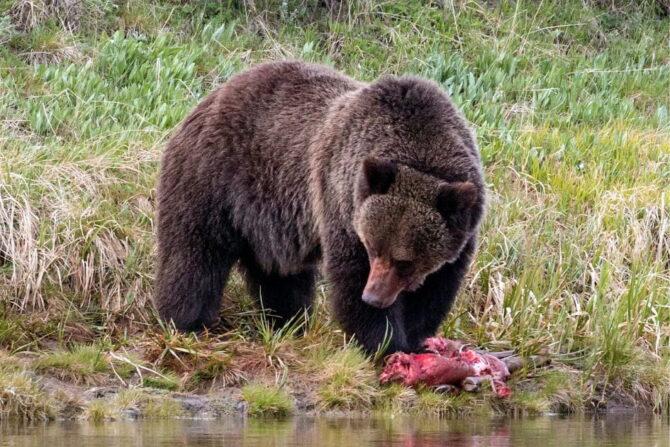
Yellowstone grizzly bears, also known as “grizzlies,” are more powerful than wolves. In a wolf-grizzly fight, the latter always comes out victorious.
Grizzlies are attracted to wolf dens because of the stank aroma that comes from there but won’t hunt wolves until a confrontation occurs (whereby the bears steal the wolves’ prey).[1]
Do Polar Bears Eat Arctic Wolves?
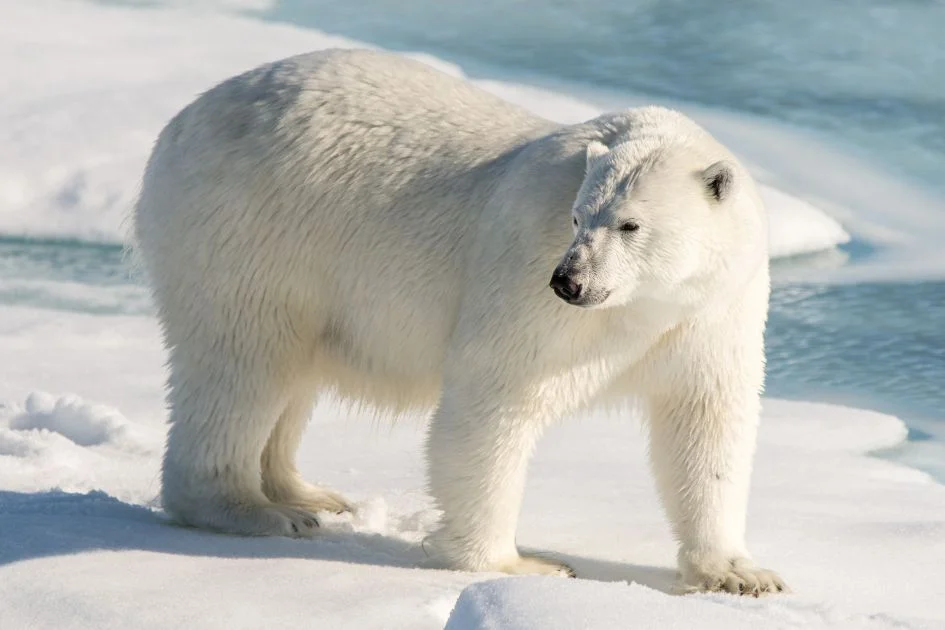
Polar bears are the main predators of arctic wolves, and both don’t cross paths too often.
When an opportunity arises, or a wolf cub wanders out of its cave, and the bear is desperate to feed on just anything to survive, it will chow on wolf meat.
However, polar bears are more content with hunting seals and sea birds.
Do Black Bears Eat Wolves?
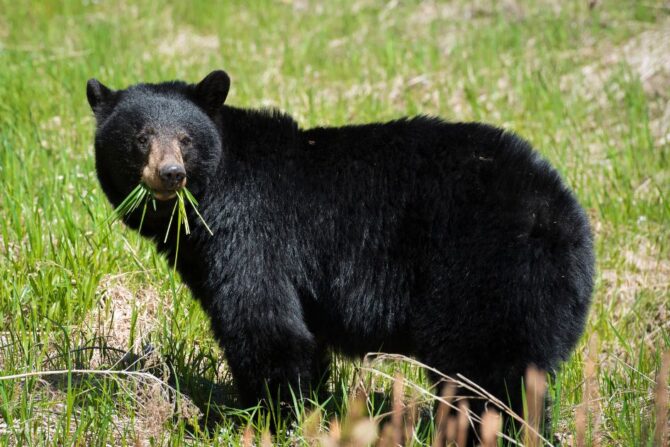
Black bears are omnivores with only a small percentage of their diet as meat.
However, if this bear species come across a wolf that just died, they will feed on its meat because, like most bears, they are opportunistic eaters.
Can Bears Hunt Wolves?
No, wolves are fast animals, and bears won’t be able to catch them in a hunt.
Generally, bears will kill and eat a wolf on rare occasions like:
- A wolf strays into a bear’s territory: Bears love their space, and if they perceive that another animal is trying to take over their territory, they will put up a fight. If a wolf ever comes between a sow and her cubs, be sure that bears would damn all consequences by fighting.
- Food scarcity: When food is scarce in the wild, and the animals compete for a particular food source, a starved bear will be bold enough to confront a wolf.
- Lone wolf: If a wolf is out by itself, it will be pretty easy for a bear to prey on it because of its size advantage. Still, there is a possibility that the bear wouldn’t catch the wolf unless it comes closer because of its poor hunting skills.
What Do Bears Eat?
Bears are omnivores, meaning they feed on plants and animals. They possess unspecialized digestive systems that are similar to those in carnivorous animals.
The significant difference between these two is that bears have an elongated digestive tract that allows them to efficiently digest meals other than meat.
Different bear species enjoy eating different things in different seasons.
For example, during spring, bears would feed on ungulates, in summer grasses and flowers are the go-to meals for bears, while during fall, nuts and seeds are abundant and make up a bear’s diet.[2]
Some animals that a bear will commonly feed on include:
- Deers
- Cows
- Seals
- Moose
- Bisons
- Elks
- Sheep, etc.
Some plants and fruits that a bear will feed on include:
- Flowering plants like dandelions, clovers, aspen leaves, etc.
- Berries like raspberries, chokeberries, strawberries, and blueberries.
Bears also enjoy eating bees and wasp’s nests, small fishes, soft fruits, insects, acorns, and nuts in cool months when berries and fruits are not available.
What Do Wolves Eat?
Wolves are exclusively carnivorous animals except for a few species like the maned wolf (Chrysocyon brachyurus), whose diet includes fruits and vegetables.
The wolves prey on different animals and the methods they use in hunting depend on the environment and wolf species.
Some of the meals prevalent among this apex predator include:
- Deers
- Elks
- Bisons
- Moose
- Rodents
- Rabbits
- Raccoons
- Hares
- Young antelopes
- Lamb, etc
Bottom Line
Wolves and bears like other top predators will prefer to feed on smaller mammals over bigger ones.
However, due to some reasons like territory invasion, and competition for food sources to survive, they will hunt and kill themselves.
Bears are lazy hunters than wolves and will prefer to scavenge a wolf’s catch than hunt down its own.
That’s why they are called Kleptoparasitic animals. This is what leads to a clash between these two animals, and the winner ends up eating the dead one.
In summary, wolves and bears will eat each other provided the right opportunity presents itself. Again, it is a “dog eat dog world” out there in the wild.
Check out other interesting articles:
- Are Wolves Friendly To Humans? Do Wolves Make Good Pets?
- Types Of Wild Dogs: All 33 Wild Dog Species With Pictures
References
Featured Image: Credit: Bill Boss/Getty Images
